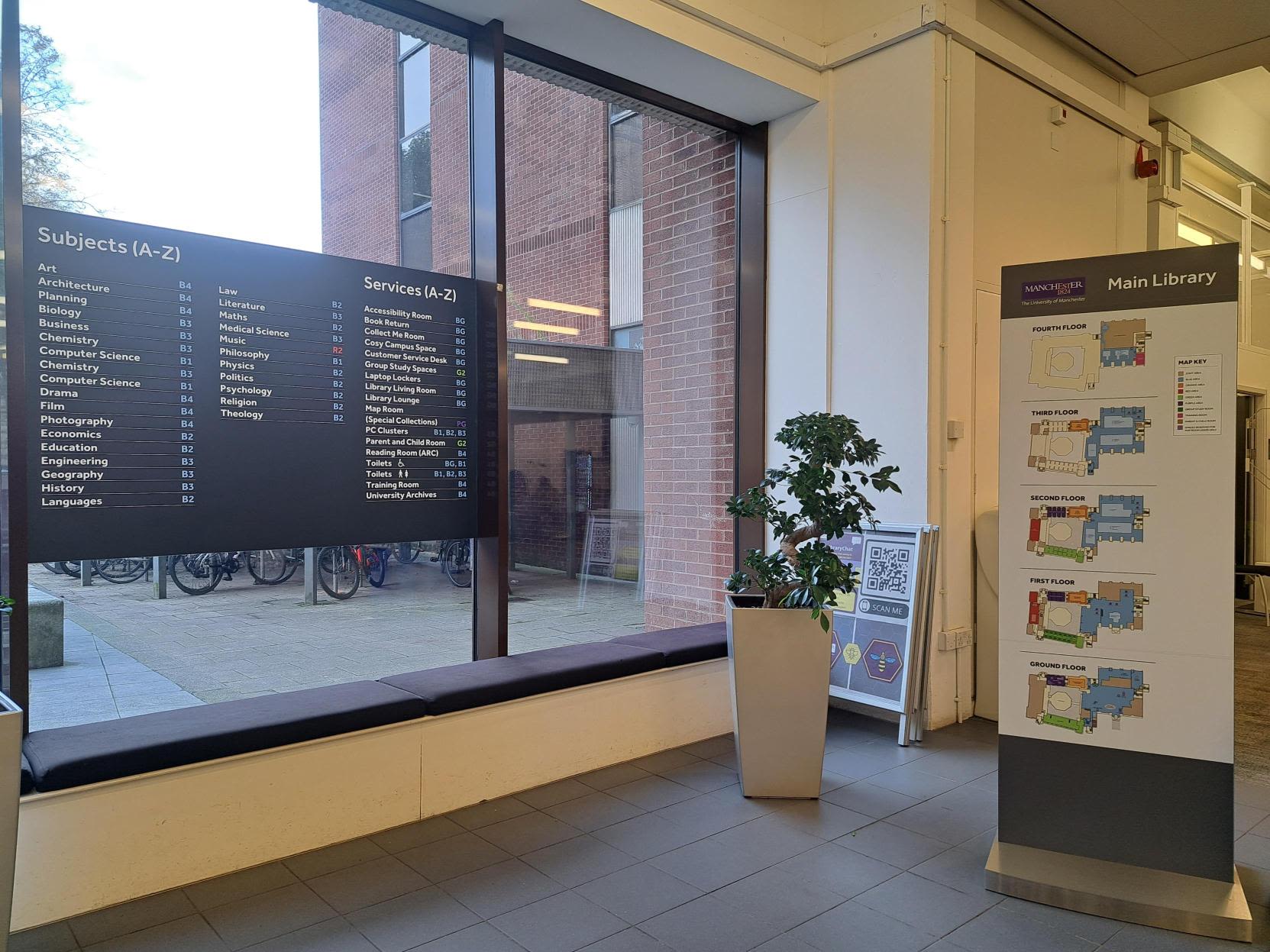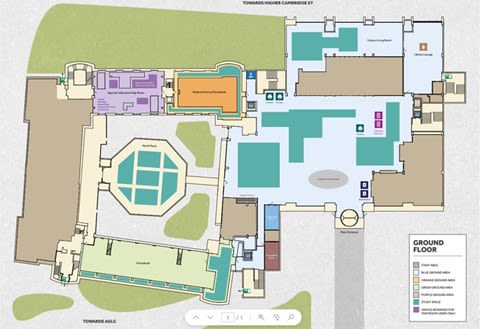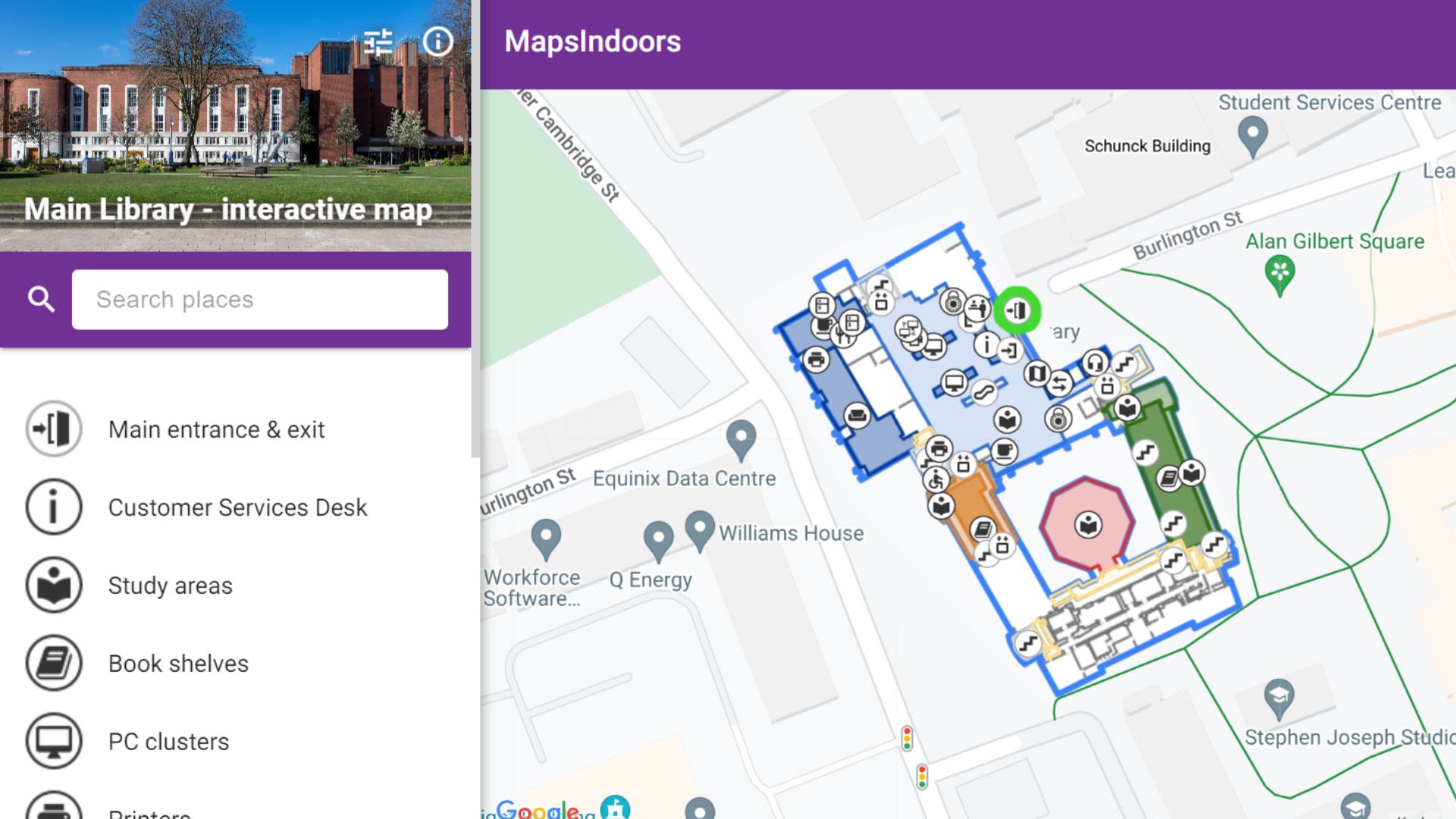Valued Services
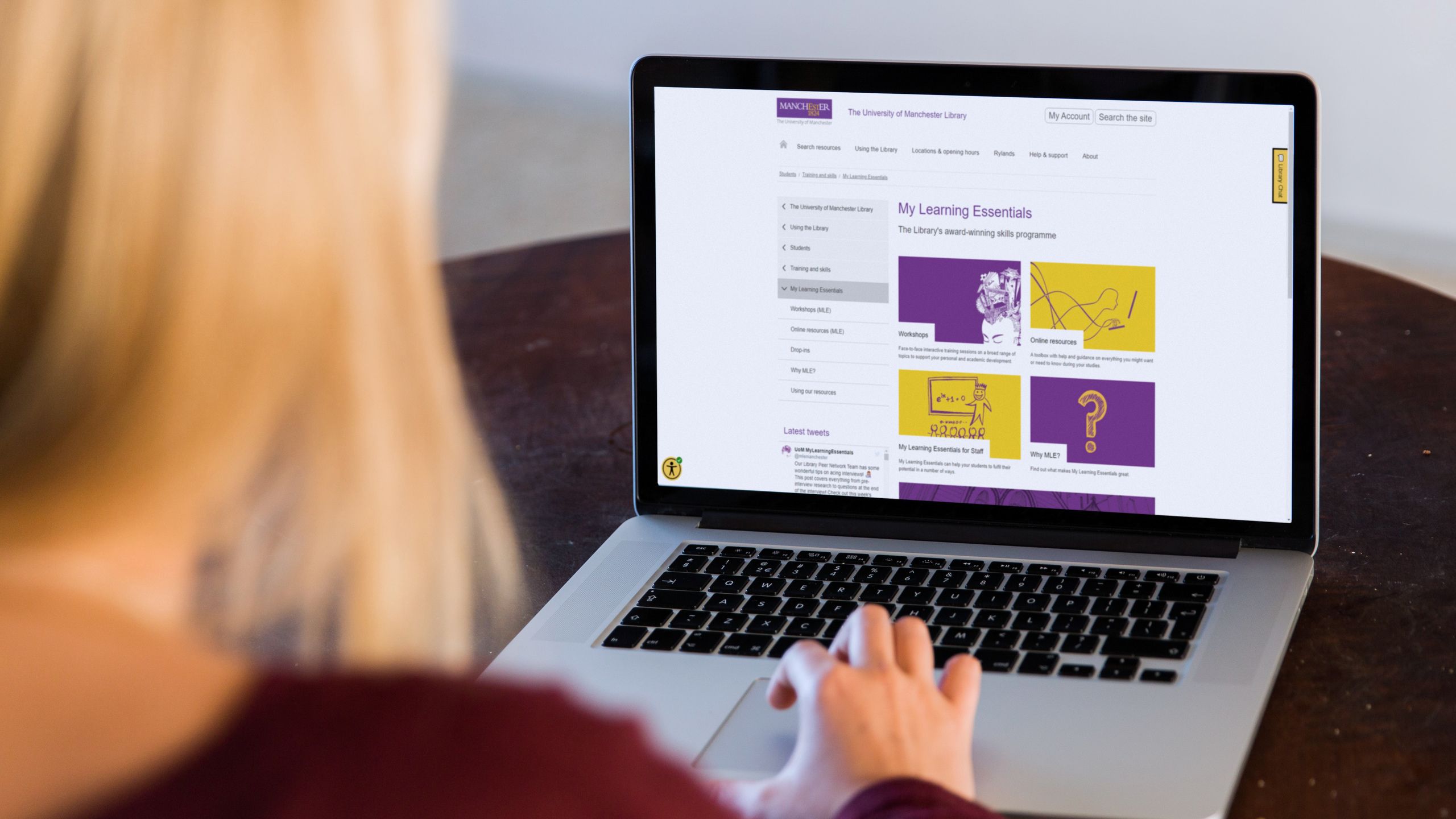
Teaching and Learning support
This year, users have accessed live and asynchronous Library teaching and learning support in huge numbers. Highlights include:
- An increase in the number of My Learning Essentials (MLE) open workshops and drop-in support from 277 sessions (2021/22) to 402 sessions (2022/23).
- Delivery of 57 Specialist Library Support (SLS) open workshops and supporting 99 sessions as part of the My Research Essentials (MRE) programme.
- Over 6,200 attendees and 1,000 hours of teaching.
- Our online resources were accessed over 93,000 times, from over 96 countries, and our subject guides accessed over 460,000 times.
- Our Ask an Expert service received over 4,300 learning related enquiries, (popular topics included referencing support, advanced searching, systematic reviews and business data) and we undertook 313 one-to-one appointments.
- 105,000 views of Library Help Teaching, Learning and Students knowledge base
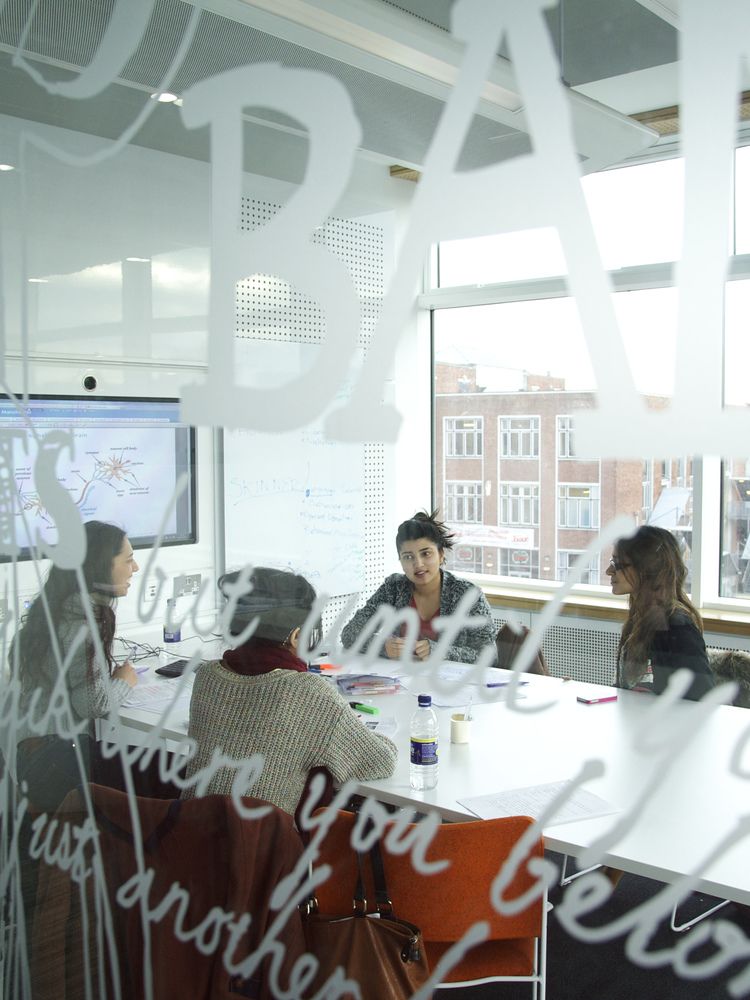
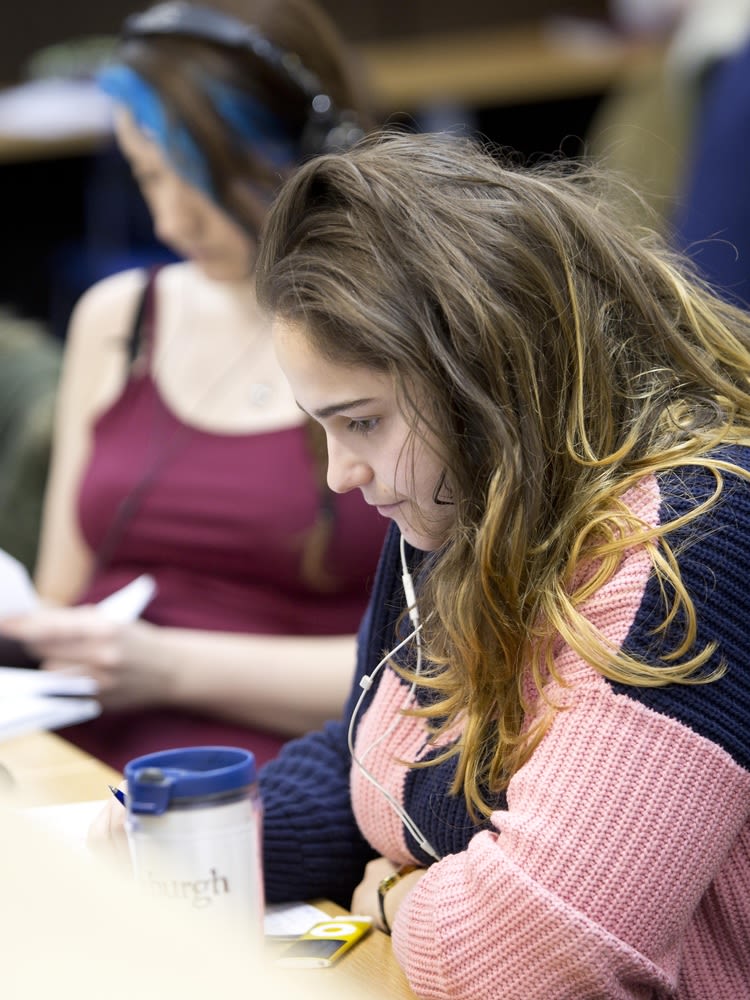
Teaching and Learning Embedded Programme
The Library’s Embedded Programme continues to build upon our open teaching and learning support for academic and support staff in their curriculum. We combined resources and sessions from My Learning Essentials (MLE) with other programmes such as Specialist Library Support (SLS) and developed bespoke support for particular disciplines.
In 2022/23 we continued to deliver a high number of synchronous sessions both online and increasingly more on campus, whilst embedding our online resources at module and programme level. This combination makes our embedded offer stronger than ever. In 2022/23, we handled 110 requests for embedded support, delivering 172 sessions attended by over 3,500 students.
Sessions often receive incredibly positive feedback from academics and students alike. This year has been no different with Carlene Barton, eLearning Technologist and Claire Hodkinson, Teaching and Learning Librarian, being nominated for Faculty of Biology, Medicine and Health Brilliant Colleague awards.
"I wanted to say a huge thank you for supporting our students so far, I have almost come to the end of marking these assignments for the previous academic year and have been astounded with the quality of the work submitted, the support they receive on the unit contributes greatly to students being able to achieve such high grades."
Academic colleague, Nursing
Reading Lists Online and our Teaching Collection
The Library’s Reading Lists Online service provides teaching staff with a simple way to deliver equitable access for students to online reading lists and directed reading from within the Virtual Learning Environment.
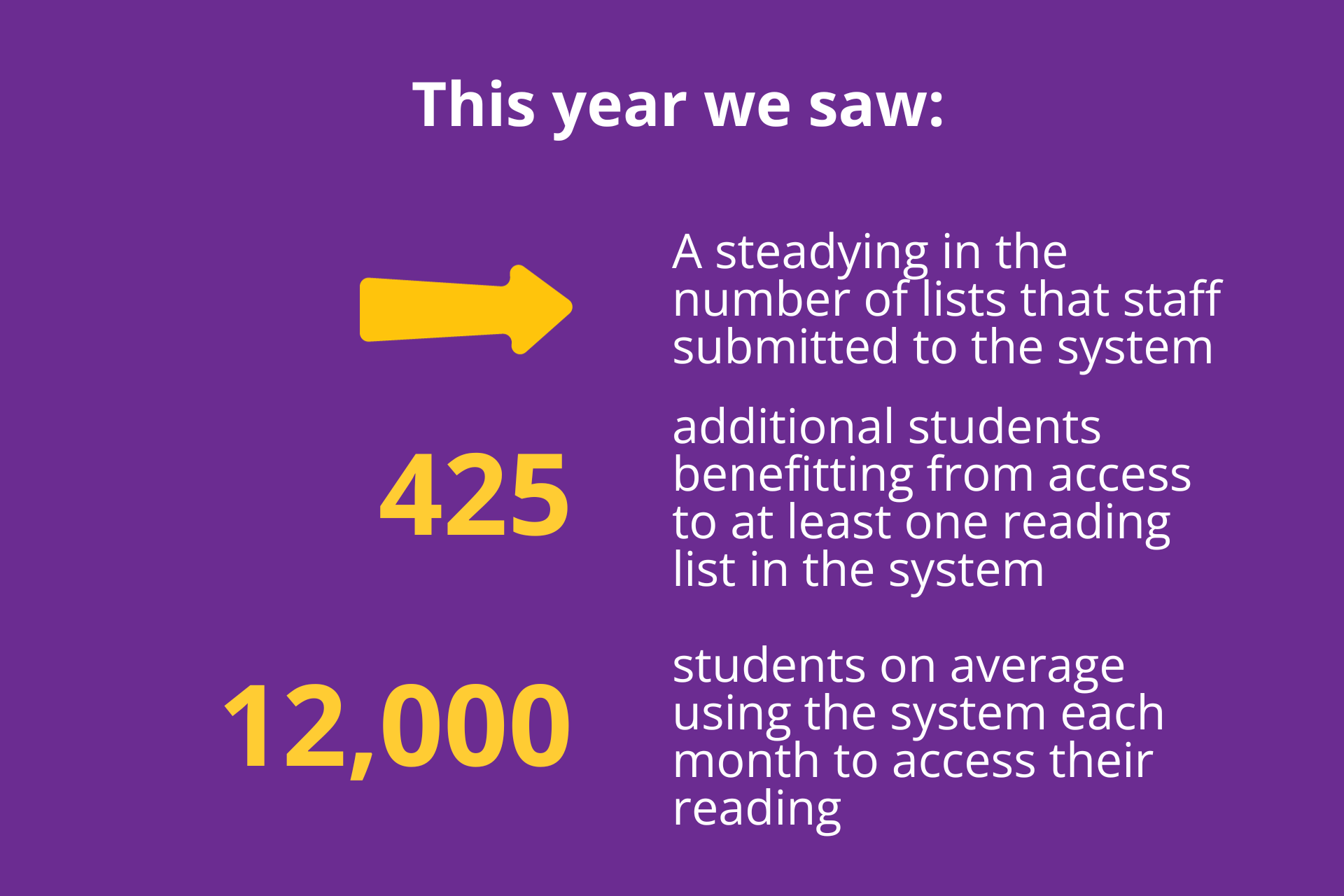
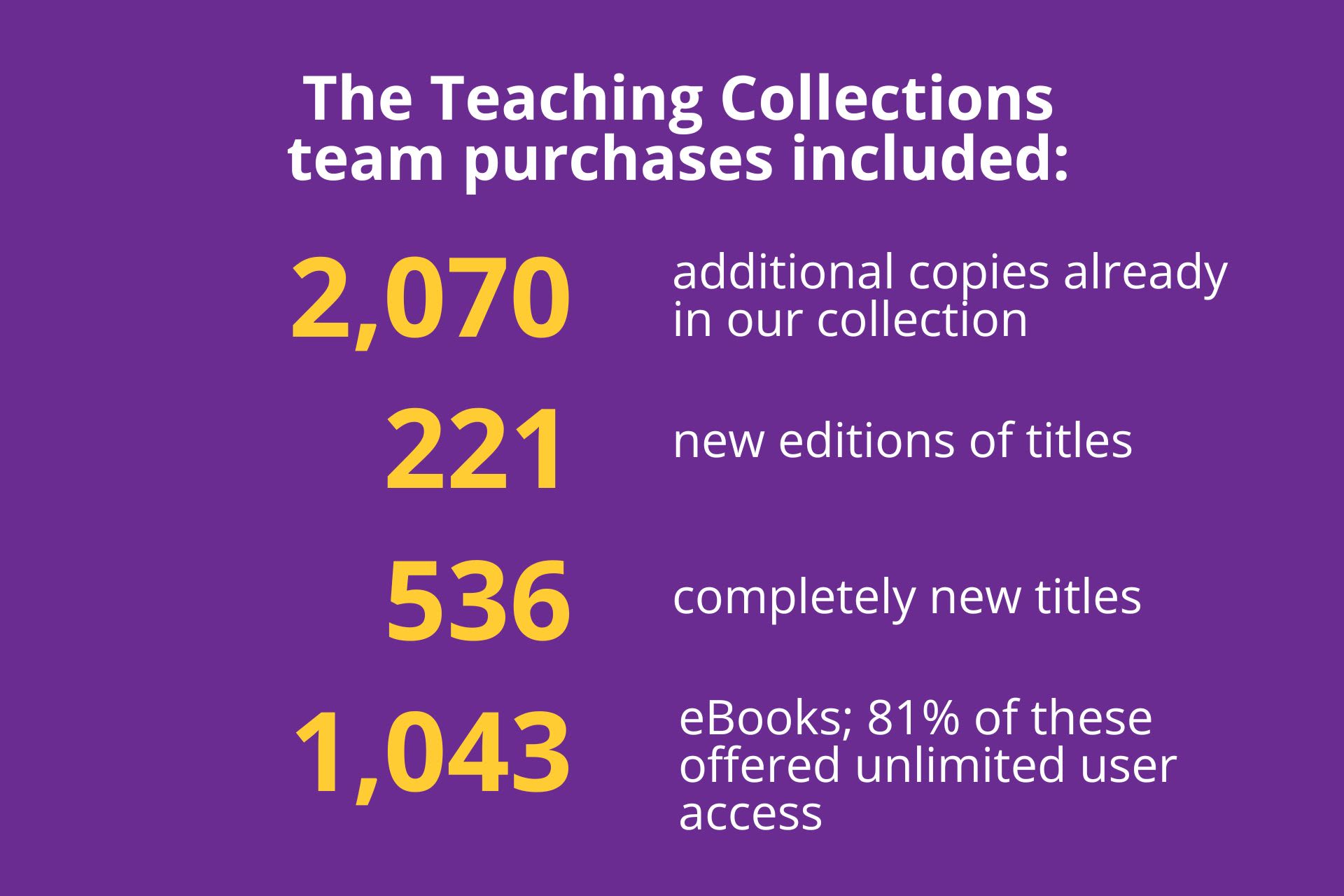
eTextbook Programme
We continued to provide eTextbooks on the Kortext platform, which offers students and teaching staff their own downloadable interactive copy of a core eTextbook.
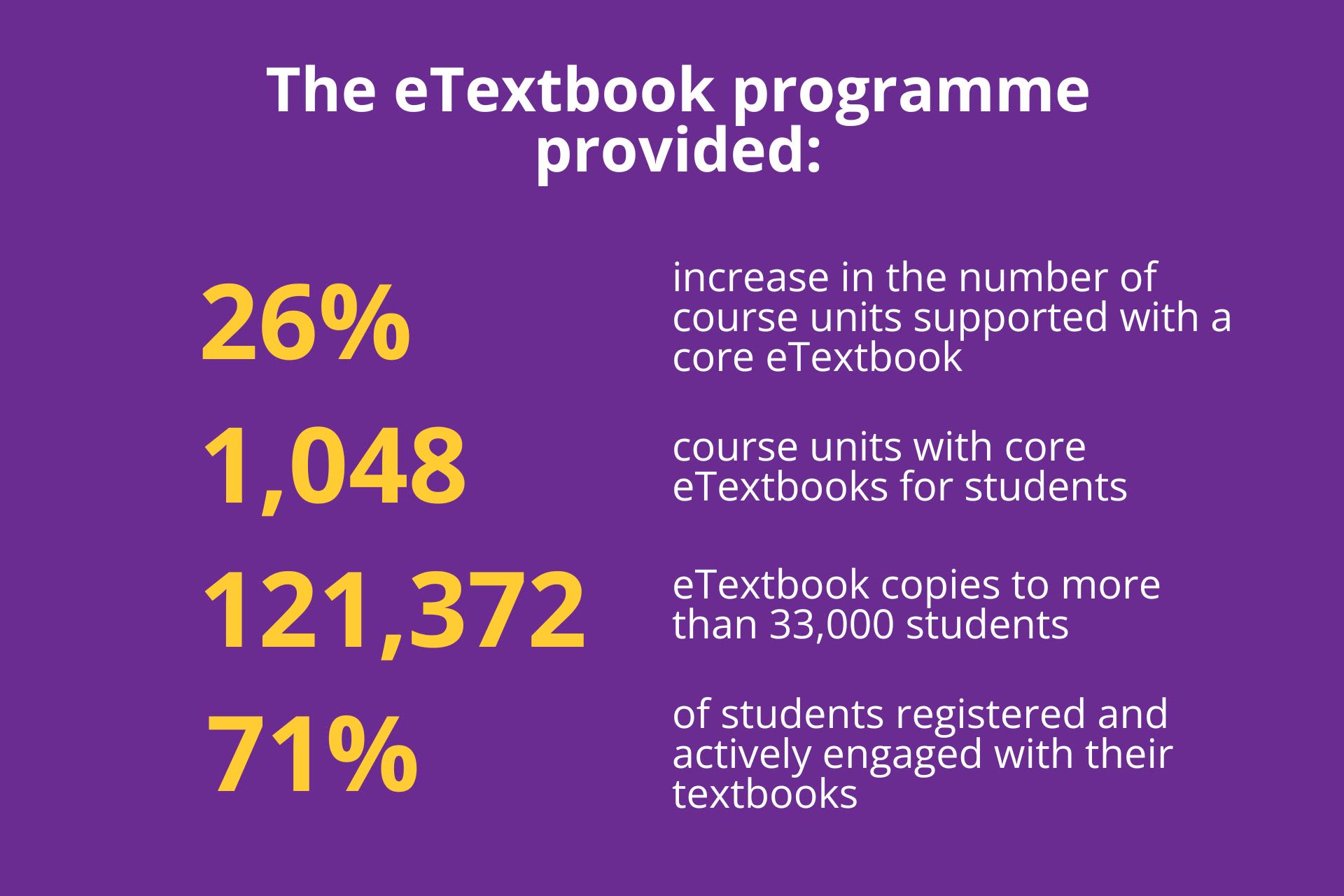
The most eTextbook Programme study sessions were undertaken in October, with 30,325 hours of study time.
Students made 561,853 annotations, 143,647 searches, 268,719 prints and copies and 10,333 downloads.
The eTextbook programme was accessed in 138 countries and 2,505 cities around the world.
The highest usage outside the UK was the USA.
Improving access to essential reading
We are broadening the titles available on the Kortext platform, piloting a 'demand driven access’ (DDA) purchasing model to supply over 96 ‘essential’ reading list titles with no other electronic availability. Titles provided through the DDA scheme had a 97% activity rate, demonstrating the value of this demand-driven service. 2,676 Textbooks were provisioned through this scheme. We will continue to expand this provision throughout 2023/24.
In addition to core eTextbooks and our new essential DDA titles, we also provided access to 13,008 Open Educational Resources (OER) through the Kortext platform, from publishers across the world, a 30% increase from 2021/22.
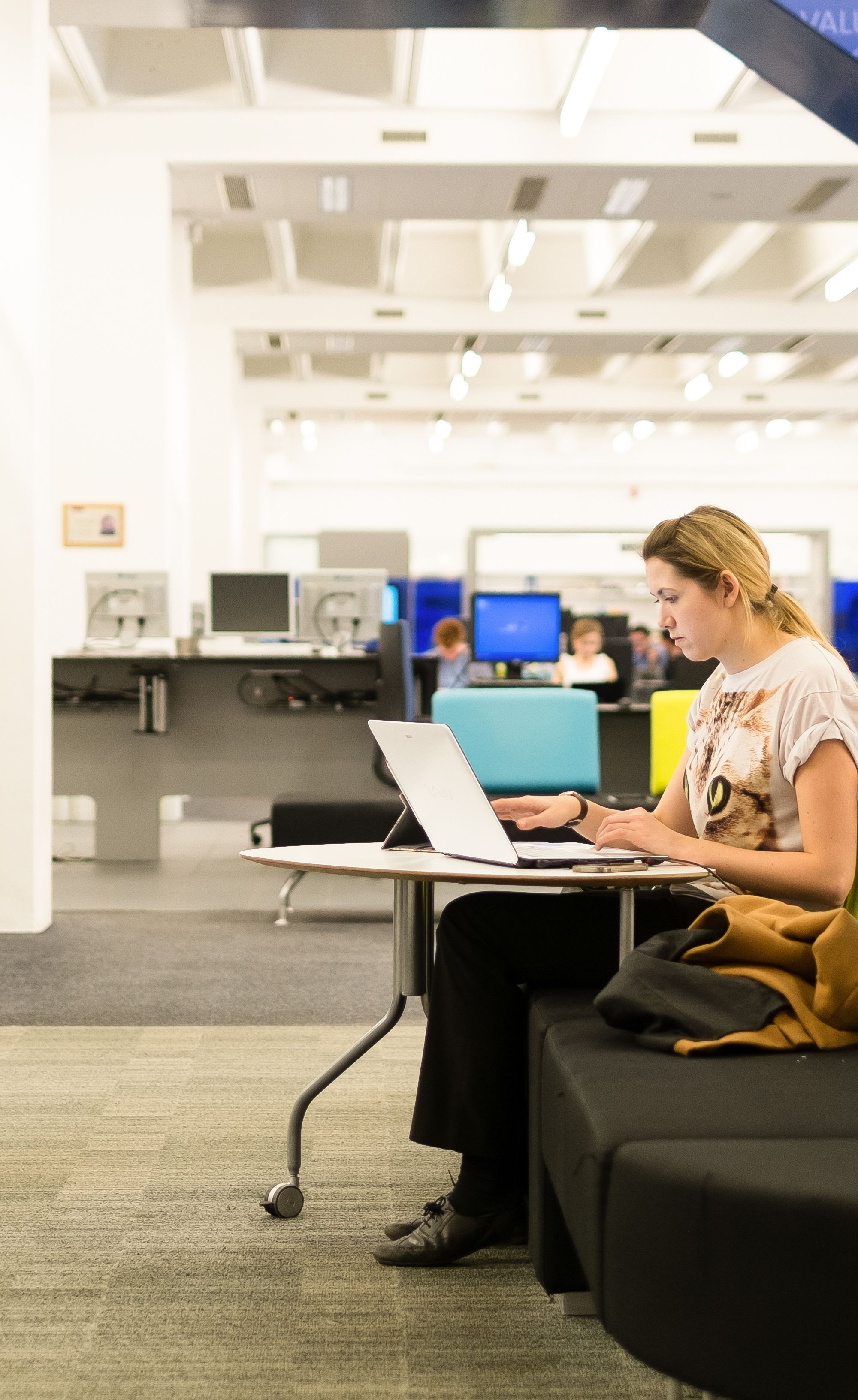
Imaging Team
The Imaging Team continue to develop innovative imaging techniques to foster collaboration with researchers at the John Rylands Research Institute and Library.
This year the team have supported Professor Guyda Armstrong’s major Arts and Humanities Research Council (AHRC) project, Envisioning Dante, to digitise 80 incunables (books printed before 1500). The Team have worked closely with the Visual Geometry Group at the University of Oxford to develop cutting-edge machine learning computational technologies and image matching processes to be applied to collection images.
We have also made good progress on the Deutsche Forschungsgemeinschaft (DFG) and AHRC funded project, Werck der Bücher - Transitions, Experimentation, and Collaboration in Reprographic Technologies, 1440–1470, and developed new imaging methodologies to streamline the process of imaging watermarks.
The Imaging Team have been integral in developing two key conservation projects:
- The National Manuscripts Conservation Trust's Demotic IX: The team provided multispectral imaging of the entire Demotic IX papyri before and after enzyme treatment. These images will be used to analyse the long-term effects of the conservation treatment.
- The Hebrew MS 54 project, supported by Rothschild Foundation Hanadiv Europe: Multispectral imaging and reflectance transformation imaging of Hebrew MS 54 will help uncover visual details which will further determine production methodologies.
The team have also developed an exciting new collaboration with the University’s National X-ray Computed Tomography facility, trialling out new workflows and areas for discovery.
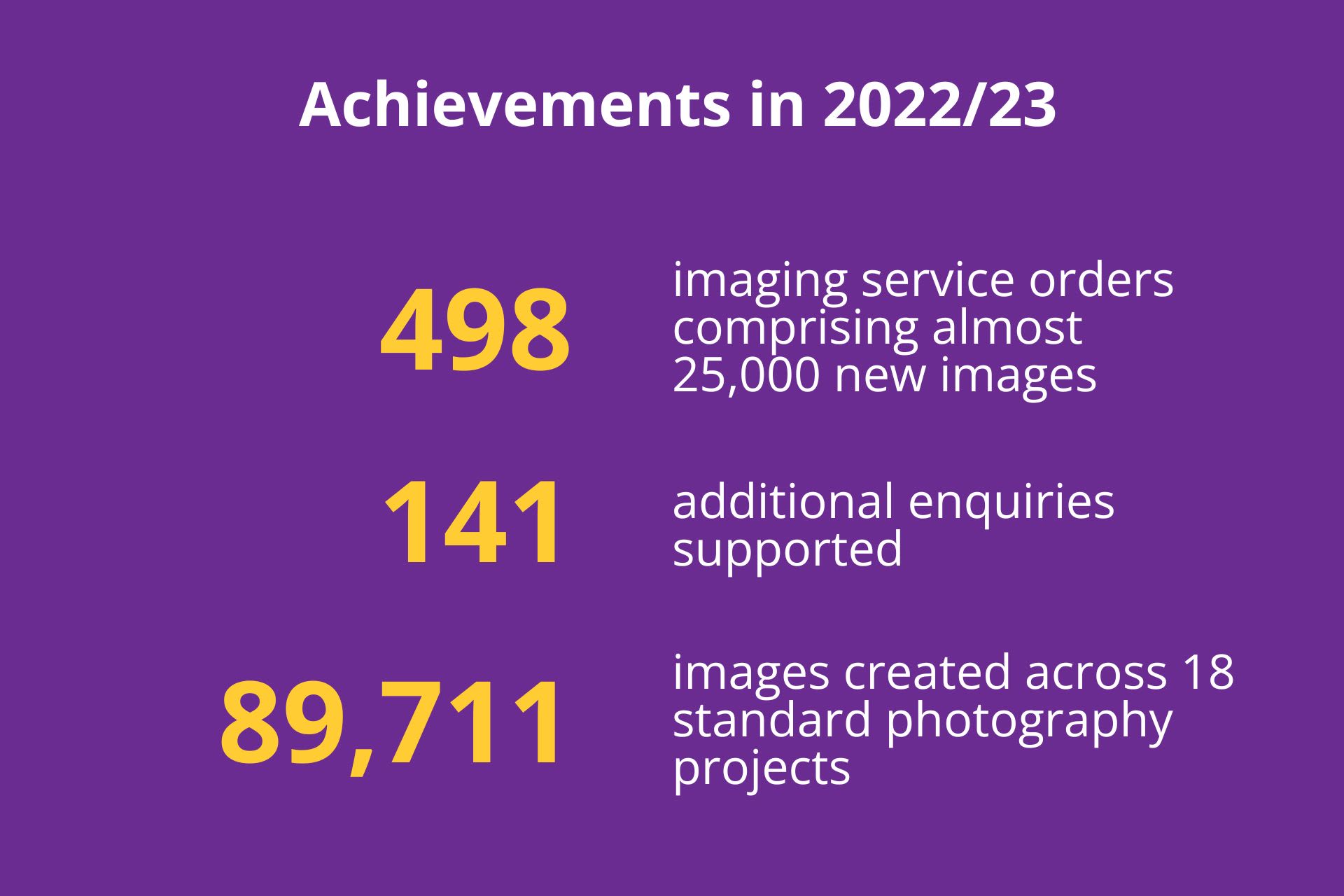
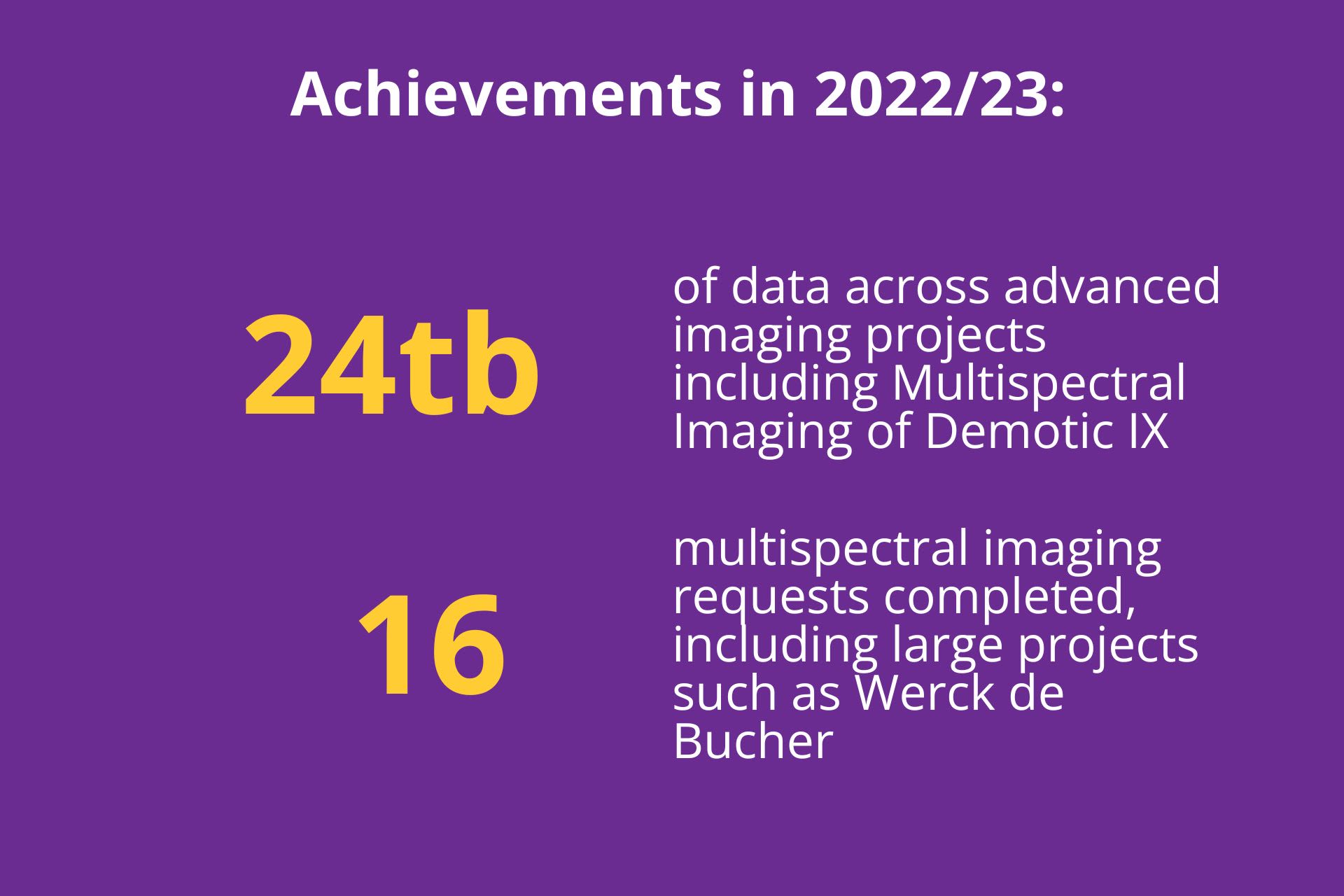
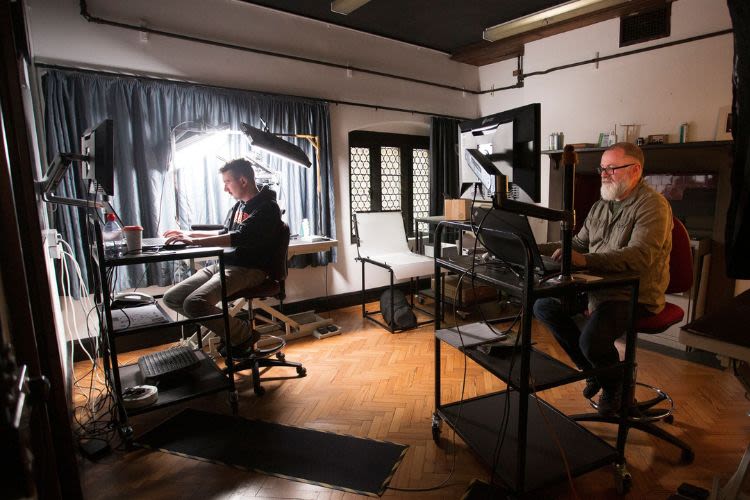


Research Services
Between September 2022 and August 2023, the Library delivered valued services to researchers. The team provided bibliometric analysis and guidance to support Schools and Faculties across the University in demonstrating research impact, including for the University’s Annual Performance Review.
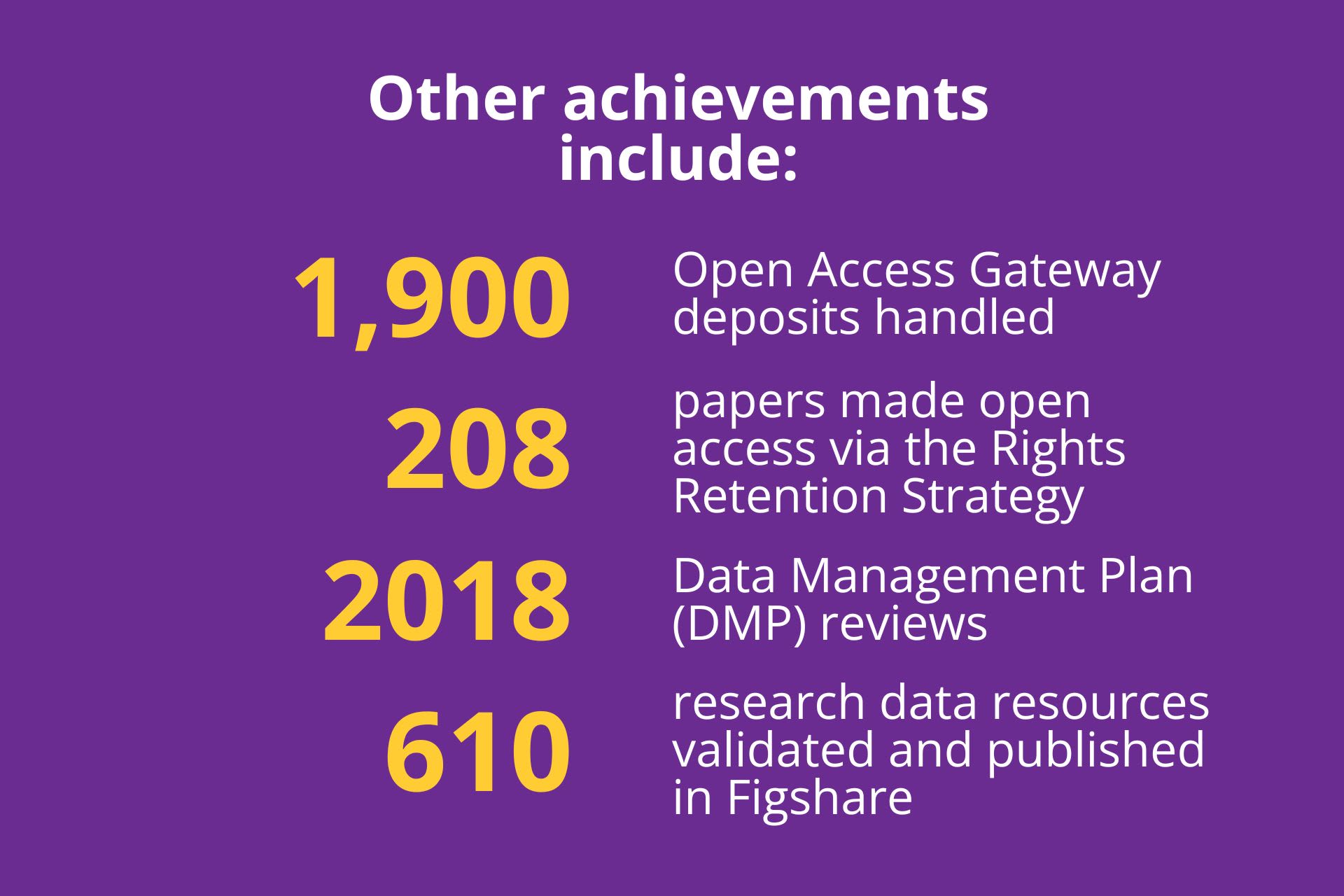
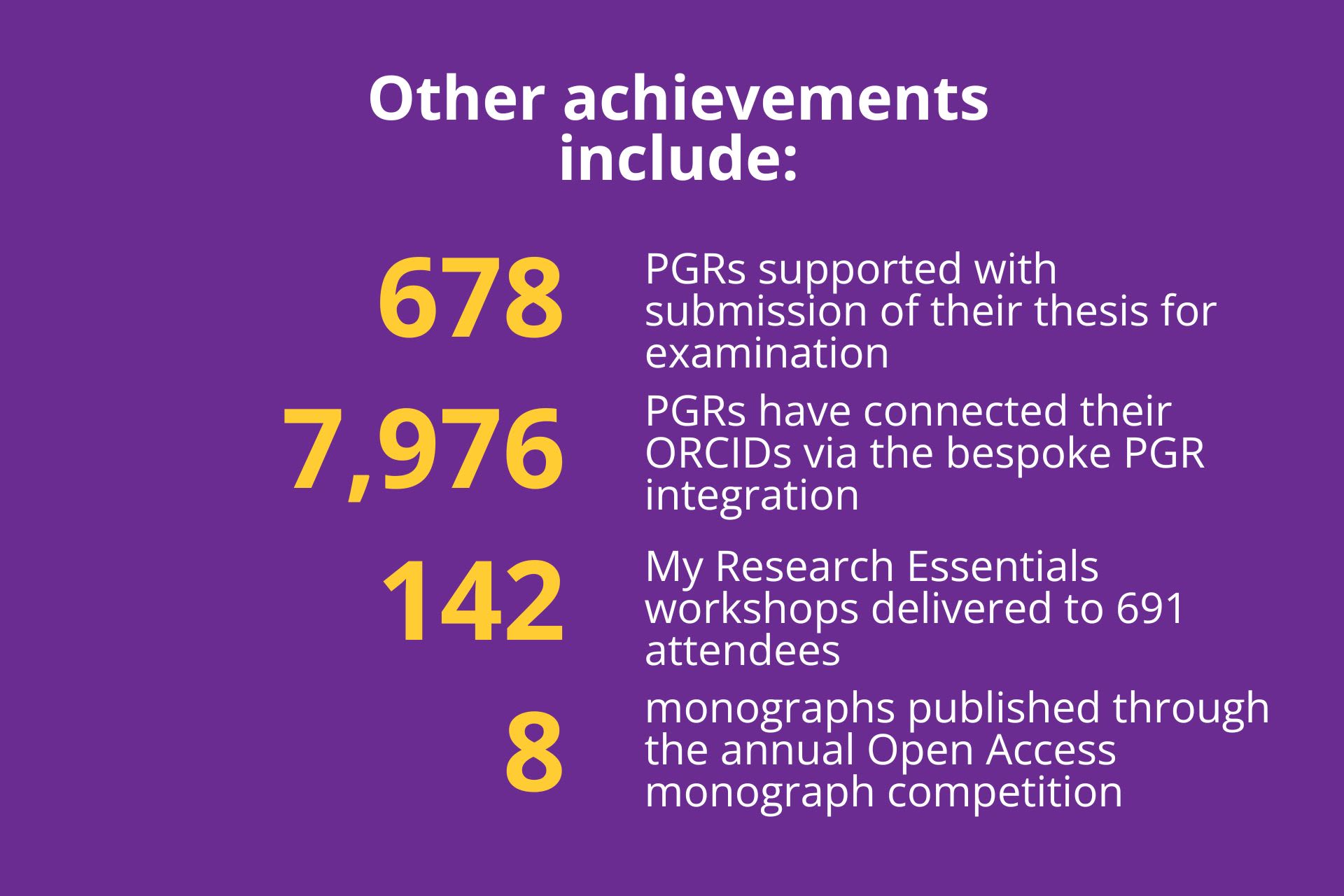
Digital Library Manchester
The Digital Library Manchester programme is our user centric digital transformation programme. Working with stakeholders within the Library and across the University, a number of foundational projects were identified and mobilised in 2022/23. This included work to identify our key library data from collections metadata to user feedback. Our ambition is to harness the power of this data by making it available to decision makers at the point of need.
Work has also begun to build a comprehensive digital storage strategy. Inspired by the Do androids dream of electronic resources? workshop at the Library’s Together23 staff conference, we are exploring the incredible opportunities and potential challenges Artificial Intelligence brings.
In 2024 we will begin our transformative strategy by exploring the key themes identified during our stakeholder engagement and requirements mapping. Themes, including personalisation and digital inclusion, will be explored through agile techniques and with considerable involvement of the user voice and experience.
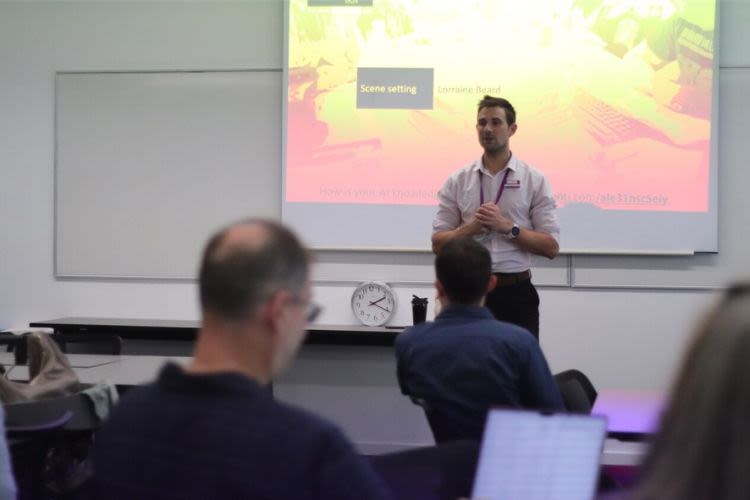
Electronic resources
The Electronic Resources Team supports a range of technologies aimed at helping to maximise usage of our collections.
Our Library Browser extension, Library Access, provides users with access to subscribed content through a convenient pop-up notification. It has a monthly user base of over 3,000 individuals.
Our use of Third Iron technologies, such as the LibKey Discovery enhancements within Library Search and the LibKey Nomad browser extension, have resulted in one-click access to over 600,000 full-text PDFs from our collections. The impact of this streamlining is estimated to have saved our researchers a total of over 350,000 minutes throughout the year.
The rich data captured in our EZproxy log files demonstrates that our primary authentication method enabled almost 3 million successful logins to e-resources platforms and access to almost 7 million e-resources over the year.
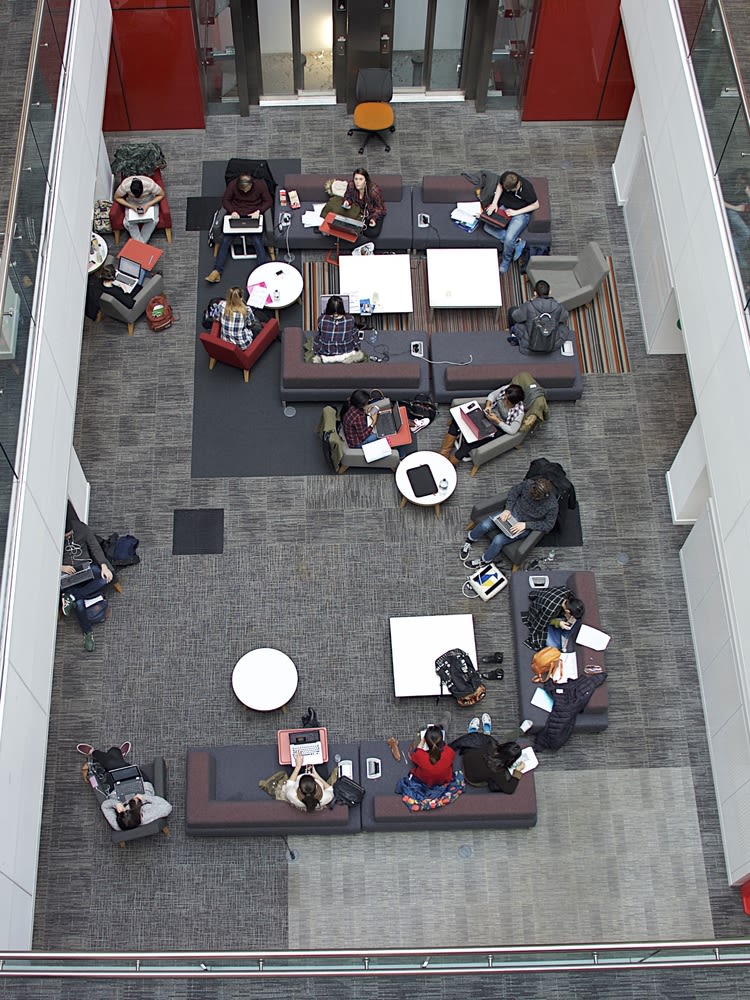
Digital support
The Digital Support Services Team have been working on redeveloping the provision of audio-visual digital technologies and supporting the Curatorial Practices team in delivering collections-based teaching, learning and research events in a live online environment.
The team handled over 8,875 Library digital services enquiries and have completed 3,129 digital support appointments for staff, students and researchers.
The team also continued to provide remote support to students via the Library Chat service, reaching students in 93 cities in 25 different countries worldwide.
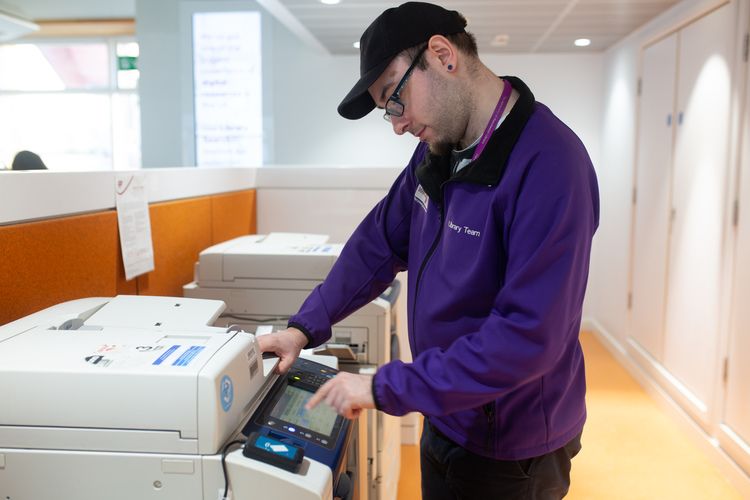
New wayfinding tools for Main Library
We launched a new interactive map, physical floor plans and directory for the Main Library.
To ensure the accuracy and usability of the interactive map, especially in non-public areas, Library staff were invited to participate in testing and evaluating the map to verify the points of interest and directions. This will greatly contribute to improving the experience for everyone who uses Main Library.
These new wayfinding tools were a product of collaboration across the Library, with colleagues combining their skills to great effect.
